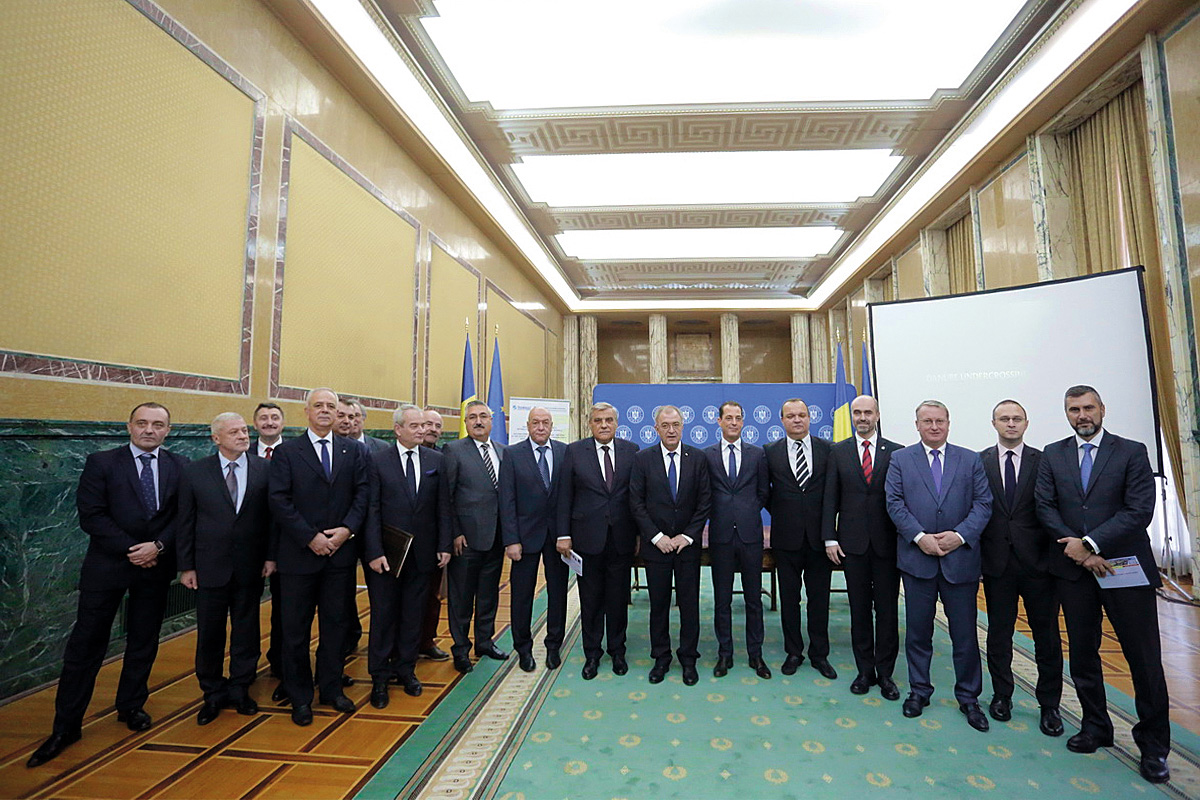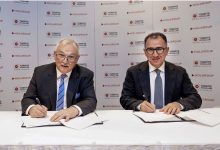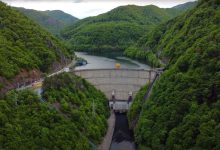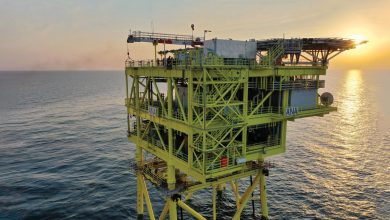Transgaz starts works at BRUA gas pipeline
The national gas transmission company Transgaz signed on 28 November 2017, in Bucharest, within a ceremony at Victoria Palace, the contracts for the execution of BRUA pipeline, Phase I, of 479km, from Podisor to Recas. Works were split into three lots, thus signing three contracts. For two lots, the tender was won by two consortia led by Habau PPS Pipeline Systems, company executing civil engineering projects, pipeline construction projects and EPCC projects focused on the oil and gas industry. For a lot, the tender was won by a consortium led by Inspet Ploiesti, company specializing in the construction and maintenance of oil and gas equipment. Inspet is also associate in one of the associations led by Habau PPS Pipeline Systems. According to the contract notice on SEAP, the value of the contracts amounts to RON 1.28bn, excluding VAT.
The two mentioned companies have executed before important works for Transgaz, one of them being the gas interconnector Giurgiu-Ruse. In this case, works were carried out based on the execution contract signed with the association consisting of Inspet Ploiesti, as leader, and Habau PPS Pipeline Systems, as associate.
In BRUA case, the tender procedure aimed at awarding the contract for the execution of pipeline works at the project ‘Development on Romania’s territory of the National Gas Transmission System on the corridor Bulgaria – Romania – Hungary – Austria, Podisor – Horia GMS and 3 new compressor stations, Phase I: gas pipeline Podisor – Recas, km 0 – km 479’.
[eltdf_separator class_name=”” type=”normal” position=”center” color=”” border_style=”” width=”” thickness=”12″ top_margin=”” bottom_margin=””][eltdf_separator class_name=”” type=”normal” position=”center” color=”” border_style=”” width=”” thickness=”12″ top_margin=”” bottom_margin=””]
Works were split into three lots, as follows:
[eltdf_separator class_name=”” type=”normal” position=”center” color=”” border_style=”” width=”” thickness=”10″ top_margin=”” bottom_margin=””]
Lot 1: Pipeline execution: the area of Podisor village: km 0 – km 180, the area of Valeni village, the commune of Zatreni, Valcea County. Affected counties: Giurgiu, Teleorman, Dambovita, Arges, Olt, Valcea. Estimated value Lot 1 = RON 413,442,063, of which the contracting entity will make available for the Contractor materials (pipe and curves), machinery and equipment (valves and insulating joints) worth RON 267,756,230. This lot was won by the association led by Inspet Ploiesti. The consortium includes other 5 companies as associates.
[eltdf_separator class_name=”” type=”normal” position=”center” color=”” border_style=”” width=”” thickness=”10″ top_margin=”” bottom_margin=””]
Lot 2: Pipeline execution: the area of Valeni village, the commune of Zatreni, Valcea County: km 180 – km 320, the area of Pui village, Hunedoara County. Affected counties: Valcea, Gorj, Hunedoara. Estimated value Lot 2 = RON 412,081,863, of which the contracting entity will make available for the Contractor materials (pipe and curves), machinery and equipment (valves and insulating joints) worth RON 247,072,919. This lot was won by a consortium led by Habau PPS Pipeline Systems, with 9 associates, including Inspet Ploiesti.
[eltdf_separator class_name=”” type=”normal” position=”center” color=”” border_style=”” width=”” thickness=”10″ top_margin=”” bottom_margin=””]
Lot 3: Pipeline execution – the area of Pui village, Hunedoara County: km 320 – km 479, the area of Recas town, Timis County. Affected counties: Hunedoara, Caras-Severin, Timis. Estimated value Lot 3 = RON 453,091,194, of which the contracting entity will make available for the Contractor materials (pipe and curves), machinery and equipment (valves and insulating joints) worth RON 262,517,361. This lot was won by an association led by Habau PPS Pipeline Systems, with 5 associates.
[eltdf_separator class_name=”” type=”normal” position=”center” color=”” border_style=”” width=”” thickness=”12″ top_margin=”” bottom_margin=””]
[eltdf_separator class_name=”” type=”normal” position=”center” color=”” border_style=”” width=”” thickness=”12″ top_margin=”” bottom_margin=””]
BRUA project is developed in the context of the need for diversification of European countries’ gas supply sources, increasing the security of Romania’s natural gas supply through access to new sources of supply, facilitating market access in Central and South-Eastern Europe to the natural gas resources in the Caspian region. The project will ensure: a bidirectional gas transmission capacity of 1.5 bcm/y to Bulgaria and a transmission capacity of 1.75 bcm/y (Phase I) and 4.4 bcm/y (Phase II) to Hungary.
Implementing BRUA project on the territory of Romania is structured in two phases, as follows:
Phase I: Podisor – Recas gas transmission pipeline, with a length of approximately 479km, with a diameter of 32” (Dn 800) and design pressure of 63 bar; Podisor GCS, Bibesti GCS and Jupa GCS, each station being equipped with two compressor units, with the possibility to ensure bidirectional gas flow.
Phase II: Recas – Horia GCS gas transmission pipeline, with a length of approximately 50km, a diameter of 32” (Dn 800) and design pressure of 63 bar; Podisor GCS upgrade, Bibesti GCS upgrade and Jupa GCS upgrade, whereby each station will be equipped with one more compressor unit; Horia GCS upgrade.
Transgaz is currently implementing Phase I of the project, benefiting from financial support from the European Union.
“The BRUA project has been a priority for Mihai Tudose Cabinet ever since its investiture, as it is of particular importance to Romania’s energy security and independence. As regards the stage of the project, the Energy Ministry issued on 27 February 2017 the construction permit and procedures to award the works were subsequently unfolded, for the design and for the stations equipment. We are witnessing today the signing of contracts for the execution works, for the first phase of the natural gas pipeline of 479 kilometres, between Podisor and Recas localities, and three compressor stations located in Podisor, Bibesti and Jupa, Romania. The total investment is estimated at 480 million euros, of which approximately 180 million are non-reimbursable funds” – Deputy Prime Minister Ion-Marcel Ciolacu highlighted on the occasion of signing the documents.
Approximately 4,000 new jobs are estimated to be created under this project, while demand for consumer goods will increase following new jobs creation, additional revenues – attracted to state budget, gas resources – diversified and Romania’s energy security will be improved, other investments and related businesses will be boosted, the local economy is stimulated to develop by increasing the value of the land near the new pipeline, and increasing the number of households, economic agents that will connect to the natural gas network. Government has several other energy priorities as set out in the government program and the new energy strategy 2016 – 2030, such as protecting vulnerable household consumers, reducing energy poverty, and fully regulating gas purchase prices.







